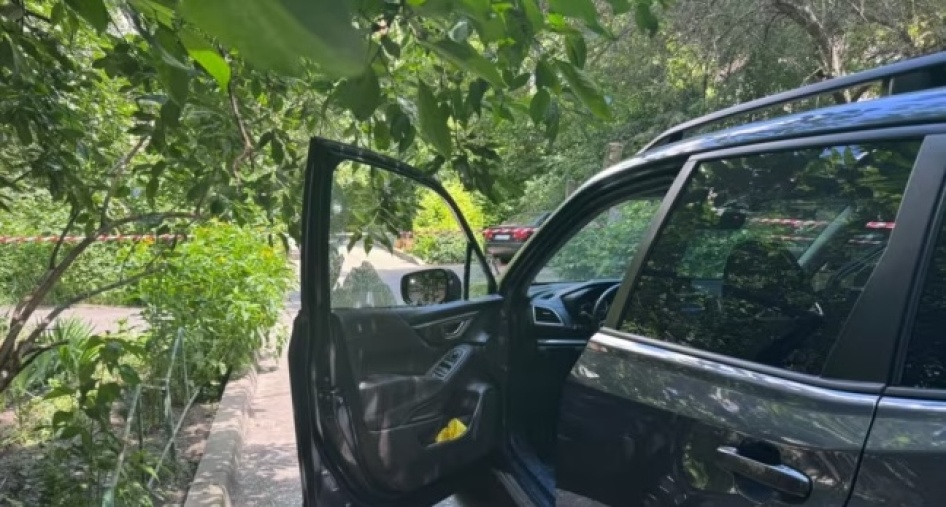Update: Aidos Sadykov, the journalist who was the victim of this attack, died on July 2, 2024.
On June 21 the Office of the Prosecutor General of Ukraine identified two suspects, both citizens of Kazakhstan, and put them on the international wanted list. One of the suspects has turned himself in to Kazakh authorities. The Prosecutor General's Office of Ukraine said on June 25 it was seeking extradition of both suspects.
On June 27 media reported that the chairman of the Senate of Kazakhstan stated that Kazakhstan had “joined the investigation and is providing necessary assistance” while also saying that it will not extradite its citizens. The Prosecutor General's Office of Ukraine said on July 2 that the authorities will revise the charges from attempted murder to premeditated murder committed by a group of persons acting in conspiracy and under orders.
(Berlin, June 21, 2024) – Ukrainian and Kazakh authorities should carry out an effective investigation into the shooting of an independent Kazakh journalist and former member of a Kazakhstan political opposition group in the Ukrainian capital, Kyiv, on June 18, 2024, Human Rights Watch said today.
Based on media and police reports issued right after the shooting, an unidentified assailant shot Aidos Sadykov as he sat in his car near the apartment building where he lives in Kyiv. Sadykov survived the attack but is in critical condition in a hospital in Kyiv. His wife, Nataliya Sadykova, was also in the car but was not injured. The Ukrainian government should ensure that those responsible are brought to justice and provide protection for him and his wife, who is also an independent journalist.
“The news of the attack on Sadykov during broad daylight in the Kyiv city center is deeply disturbing,” said Hugh Williamson, Europe and Central Asia director at Human Rights Watch. “Ukrainian authorities should ensure Sadykov’s safety, identify the attacker, bring them to justice, and determine who ordered the attack. Kazakhstan should show it is committed to the rule of law during this process.”
On June 18, the national police of Ukraine reported on its Telegram channel that “ an unknown assailant approached a car parked on the street, in which a man and his wife were [sitting], and shot at the man, after which he fled. The woman was not injured.” On June 19, Sadykova told the media that the bullet had hit her husband in the temple and affected his brain and that neurosurgeons operated on her husband for more than two hours. She was quoted as saying that “his condition is very serious.”
The Office of the Prosecutor General on June 18 stated on social media that the police had opened an investigation into “an attempted murder of a journalist, a citizen of Kazakhstan (Part 2 of Article 15, Part 1 of Article 115 of the Criminal Code of Ukraine). The man is currently in the hospital in serious condition.” Kazakhstan President Kassym-Jomart Tokaev said on June 19 that Kazakhstan authorities would co-operate with the investigation.
Sadykov was a chairman of the Aktobe regional branch of the opposition National Social Democratic Party “Azat” until 2010. He is well known for his critical views of the Kazakhstan government, in particular for accusing it of pro-Russian policies. He is one of the founders of the popular YouTube channel Base (Басе), with more than one million subscribers and a Telegram channel with the same name.
Base reports on politically sensitive topics, including protests of workers across Kazakhstan, criticizes the policies of the Kazakhstan government, and conducts journalistic investigations into corruption and oligarchs and their families.
Base’s work during and after the January 2022 events in Kazakhstan and the July 2022 events in Karakalpakstan, Uzbekistan’s autonomous region, during which, on both occasions, security forces used lethal force against protesters, included the crucial collection of video materials from witnesses of the events.
Sadykov and Sadykova fled Kazakhstan in 2014 after Kazakh authorities opened a criminal case against Sadykova on charges of slander, an offense that was decriminalized in 2020. They have lived since 2014 in Kyiv, where both have refugee status.
The Kazakh government has targeted Sadykov in the past with criminal investigations and prosecution. In 2010, he was sentenced to two years in prison on charges of “hooliganism” and was released in 2012. Sadykov and his supporters claimed the criminal case was fabricated.
In October 2023, Kazakh authorities put the Sadykovs on a Kazakhstan wanted list, accusing them of “inciting social, national, clan, racial, class, or religious discord,” (article 174 of the criminal code), a vague and overbroad criminal offense that Kazakh authorities often use to target and prosecute activists and journalists. Human Rights Watch has repeatedly said that Kazakh authorities should amend the legislation to bring it in line with international human rights law.
Sadykova told the media on June 18 that the couple have received repeated threats “for covering political events in their homeland.” She said she believes the attack was in retaliation for her husband’s professional activities. Activists who visited the Sadykovs in Ukraine several years ago told the media that the Sadykovs were under surveillance then by unidentified people.
President Tokaev said on June 19 that he has instructed relevant government departments to send official requests to the Ukrainian officials regarding the incident and that Kazakhstan’s official bodies were ready to help in the investigation “to discover the truth.”
“Journalists should be able to carry out their work without fear of reprisals,” Williamson said. “This may have a chilling effect on many others who criticize the authorities or express discontent, leaving them to live in fear.”









